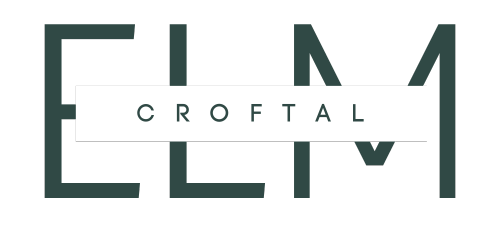Limiting beliefs are those subconscious thoughts and assumptions that hold us back from reaching our true potential. These mental barriers often tell us we’re “not good enough” or “not capable,” directly impacting our mindset and stunting personal development.
The good news? These beliefs are learned—meaning they can be rewritten. This blog will outline actionable steps you can take to challenge and overcome limiting beliefs, cultivate a stronger mindset, and accelerate your self-help and personal development journey.
By the end, you’ll have a clear roadmap to break free from your mental roadblocks and unlock a life of greater clarity, confidence, and achievement.
Understanding the Impact of Limiting Beliefs
Limiting beliefs don’t only exist in your mind—they have a tangible impact on your life. These negative thoughts often lead to feelings of doubt, procrastination, and fear, sabotaging personal growth. For example:
- Career Advancement: “I’ll never get promoted because I’m not good enough.”
- Relationships: “I’m not lovable, so nobody will stay with me.”
- Health: “I’ve always been unfit, so why even try?”
Beliefs like these can shape your decision-making and behavior, convincing you to stay in your comfort zone. Addressing and rewriting them is critical for developing a resilient, forward-thinking mindset.
Key Insight
Research shows that 80% of our thoughts are negative and repetitive. Identifying these thought patterns is the first step in creating meaningful change.
Start by Identifying Your Mental Barriers
To overcome limiting beliefs, you first need to recognize them. These beliefs are often subtle and ingrained over time, which makes them difficult to detect. Here’s how you can start to identify them:
1. Pay Attention to Your Inner Dialogue
Your self-talk can reveal a lot about your mindset. Notice the phrases you commonly repeat to yourself. Are you overly critical? Do certain words or phrases emerge, like “I can’t” or “I’ll never”?
2. Reflect on Personal Patterns
Identify areas in your life where you feel stuck. It’s possible that limiting beliefs are at work here. For example, if you consistently avoid public speaking, dig deeper to understand the underlying thought (“I’m not good at presenting in front of people”).
3. Write It Down
Use journaling to record your recurring thoughts, especially those tied to obstacles or failures. Re-reading these entries can help you spot patterns that might otherwise be missed.
Example
You’ve avoided applying for your dream job because of the belief, “I don’t have the right qualifications.” Recognizing this as a limiting belief is the first victory. Now, you can work to reframe this thought.
Reframe the Belief with Positive Alternatives
Once you’ve recognized limiting beliefs, you can begin to challenge and reframe them. Adopting a positive, growth-driven mindset requires intentional effort but yields lasting rewards.
Ask Yourself Tough Questions
When a limiting belief arises, actively question its validity.
- “Is this thought based on evidence, or is it just fear talking?”
- “What proof do I have that this belief is true?”
- “What would I say to a friend who had the same thought?”
Replace Negativity with Constructive Affirmations
Focus on creating affirmations that directly counter your limiting beliefs. For instance:
- Replace “I’m not good at presentations” with “I’m getting better at public speaking every day.”
- Replace “I’m not smart enough to succeed” with “I can learn and improve consistently.”
Pro-tip
Repeated affirmations help rewire your subconscious mind over time. Speak them out loud, write them down, or visualize their meaning every day.
Set Realistic Goals that Challenge Your Comfort Zone
Overcoming limiting beliefs requires stepping out of your comfort zone and proving to yourself that you’re capable. To do this, set goals that are both challenging and achievable.
Break It Down
Big goals can feel intimidating, especially if limiting beliefs have kept you stuck for years. Break down larger objectives into bite-sized tasks to make them feel more manageable. For example, if you want to develop confidence in public speaking, start by:
- Practicing in front of a friend.
- Gradually increase your audience from small groups to larger settings.
- Watching videos or tutorials from expert speakers for inspiration.
Track Your Progress
Celebrate small wins along the way. Progress can motivate you to push past future challenges.
Example
If a limiting belief tells you, “I’m not a leader,” challenge it by volunteering to lead a small project. The positive experience will help diminish the power of the original belief.
Seek Inspiration from Role Models
Observing others who have overcome similar barriers can be extremely motivating. Role models show us that adversity can be overcome, and a stronger mindset is attainable.
Look to Experts
Seek inspiration from thought leaders in self-help and personal development. Authors like Carol S. Dweck or Brene Brown have shared evidence-based methods for overcoming mental barriers.
Connect with Communities
Surround yourself with like-minded individuals. Online forums, support groups, or courses in personal development can help provide accountability and fresh perspectives.
Key Takeaway
The success of others doesn’t diminish your potential—it’s proof that progress is possible.
Practice Self-Compassion
Changing your mindset doesn’t happen overnight. It’s a process, and setbacks are inevitable. The key is to treat yourself with patience and kindness.
Acknowledge Progress
Small wins are still wins. Celebrate every step you take toward personal development, no matter how minor it may seem.
Don’t Be Afraid to Ask for Help
Sometimes overcoming mental barriers requires external support. Consider working with a coach, therapist, or trusted mentor who can guide your journey.
Remember
Strengthening your mindset is like building muscle—it takes consistent effort and care.
Tap Into the Power of Mindset for Lasting Growth
Overcoming limiting beliefs is not just about improving your mindset—it’s about rewriting your story and reclaiming your potential. By identifying your mental barriers, challenging them, and adopting a growth-driven perspective, you’re opening the door to opportunities that once felt out of reach.
It’s time to challenge your negative self-talk, build a stronger belief system, and watch your personal development flourish.
Want more resources to guide your self-help journey? Explore this website for practical tools and expert advice. Start today—because the strongest, most confident version of you is worth the effort.

